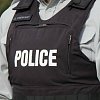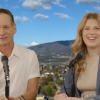The First Home Savings Account (FHSA) is a new tax-free savings vehicle introduced in the 2022 Federal budget to assist eligible Canadian residents in purchasing their first home.
We’ve developed this article for information purposes only. Information about FHSAs is based on what is currently available from the Canadian government and can be subject to change.

The Tax-Free First Home Savings Account explained
If you’ve been dreaming of purchasing your first home, you know the prospect can feel at once exciting and daunting. One of the biggest barriers standing in the way of home ownership: saving enough for a down payment.
In an effort to help more Canadians enter the housing market, the Government of Canada introduced a new registered plan through its 2022 budget, called the Tax-Free, First Home Savings Account (FHSA). Through the new account, prospective home buyers can save up to $40,000 tax-free for the purchase of their first home. The FHSA is packed with powerful benefits that can help you save faster than ever before and will come into effect at some point in 2023.
1. What, exactly, is an FHSA?
The FHSA is a registered plan designed to help first-time homeowners save for a down payment. It combines the very best features of a registered retirement savings plan (RRSP) and tax-free savings account (TFSA).
- Annual FHSA contribution limit: $8,000 | Lifetime FHSA contribution limit: $40,000
- Like an RRSP, contributions made to a FHSA are tax-deductible.
- As with a TFSA, no taxes are paid on withdrawals made to purchase an eligible first home.
There are also certain duration requirements for the First Home Savings Account. Accounts can stay open:
- For maximum of 15 years
- Until the end of the year that an individual turns 71
- Until the end of the year following the year a qualifying withdrawal for a home purchase is made
2. Who is eligible for the FHSA?
Getting started is half the work. To open an FHSA, you must be:
- A resident of Canada as defined by the Government
- Between the ages of 18 – 71 years; You must be the age of majority in your province of residence (19 years old in British Columbia)
- A first-time home buyer, meaning: you must not have lived in a home you owned in the year the FHSA is opened, or during the preceding four calendar years.

3. What are the top benefits?
Grow your savings, not your taxes. The First Home Savings Account has four powerful incentives:
- It offers tax-sheltered savings. The FHSA allows you to save for a down payment tax-free for up to 15 years. Since investment earnings aren’t taxed, savings can grow faster than a traditional savings account—expediting the time it takes to reach your goals.
- Contributions are tax deductible. As contributions are deductible from your income, it can lower your annual tax bill or even increase your tax return each year.
- Ability to transfer funds from an FHSA to an RRSP or RRIF. Transfers from the holder’s FHSA to an RRSP or RRIF in their name can take place on a tax-deferred basis and does not affect the holder’s RRSP contribution room.
- Ability to use the FHSA and Home Buyers’ Plan together in respect to the same qualifying home purchase. As an example, two individuals purchasing a home together, could mean up to $150,000 towards a down payment with these two government programs.
4. Tell me more about contributions and deductions.
Now, we’ll dig deeper into the fine print of contribution limits and deductions.
- Lifetime limit and annual contributions. The FHSA has a lifetime limit of $40,000, and contributions are capped at $8,000 per year.
- Carry-over contributions. Any unused contributions from the previous year can be carried forward, to a maximum of $8,000. So, for example, if you contributed $3,000 in 2023, you’d be able to carry forward $5,000. This means the allowable contribution limit would be $13,000 in 2024 ($8,000 plus $5,000 from the prior year). Subject to applicable CRA legislation.
- Tax deductible. Contributions can be claimed as a deduction against all sources of taxable income—reducing your overall amount of taxable income for the year. Contributions made within the first 60 days of a given calendar year cannot be claimed in the previous tax year.
5. What can you withdraw the money for?
Let’s get down to the details. An account holder must meet certain conditions to withdraw money tax-free. You must:
- Be a first-time home buyer and a resident of Canada at the time of the withdrawal
- Have a written agreement to buy or build a qualifying home located in Canada before October 1 of the year following the withdrawal
- Intend to occupy the qualifying home as your principal residence (not an investment or leisure property) within one year of buying or building it
When funds are withdrawn, FHSA contribution room is not reinstated.

6. How does it differ from the Home Buyer’s Plan?
As you may know, the Home Buyers’ Plan allows you to take $35,000 from your RRSP without being taxed to use for your first home. The caveat: you must pay what you borrowed within 15 years.
This is a core difference from the FHSA, which does not need to be paid back to the account. It’s also worth noting that you can use both the FHSA and Home Buyers’ Plan for your first home!
7. What happens if you don’t buy or build a new home?
Change happens. So, what do you do if your circumstances shift, and you no longer need to purchase or build a home?
You can transfer any savings from your FHSA into a RRSP or Registered Retirement Income Fund (RRIF). This transfer is done on a tax-free basis. Your savings are only taxed when they are withdrawn and not used for a first home purchase.
Once the money is withdrawn, it does not need to be repaid.
8. Can I have a real-life example?
Of course. Meet Charlotte—a 30 year old who wants to buy her first home. If Charlotte plans to buy a home in the next 15 years, an FHSA may be an excellent option for her to save for a down payment. That’s because she can take advantage of annual tax deductions, while investing and growing her savings tax-free at the same time.
If Charlotte changes her mind at any time and decides she won’t be buying a home, she can transfer the money from her FHSA to her RRSP. However, she will need to pay tax on the money once she starts to withdraw from her RRSP or RRIF.
9. What’s the key takeaway?
By allowing you to save up to $40,000 (or up to $75,000 if combined with the Home Buyers’ Plan) tax-free and providing tax deductions, the FHSA can help you realize your home ownership dreams. As many Canadians grapple with climbing real estate prices, it’s certainly an investment tool that’s worth considering.
10. Where can I learn more?
We’ve covered some of the most common questions about the First Home Savings Account in this piece. To learn more or check for updates, please visit the Tax-Free First Home Savings Account information page on the Government of Canada website.

Legal:
Please ensure your FHSA, TFSA and RRSP contributions are within your allowable limits set by Canada Revenue Agency (CRA) and you are solely responsible for confirming that any such contributions are within your allowable limits. All rules and contribution limits for as set out by CRA and applicable legislation apply. Information about FHSAs is based on what is currently available from the Canadian government and can be subject to change.
Valley First:
Mutual funds, other securities and securities related financial planning services are offered through Qtrade Advisor, a division of Credential Qtrade Securities Inc. Financial planning services are available only from advisors who hold financial planning accreditation from applicable regulatory authorities. Mutual funds and related financial planning services are offered through Qtrade Asset Management (a tradename of Credential Asset Management Inc).




















